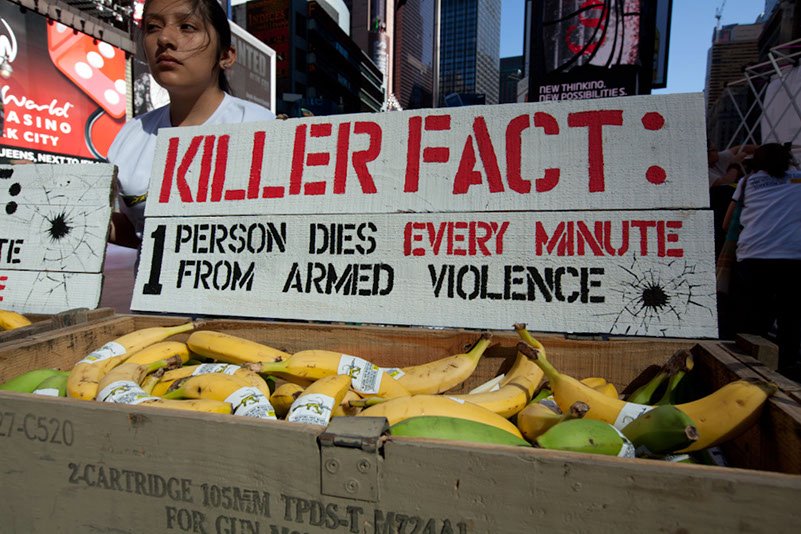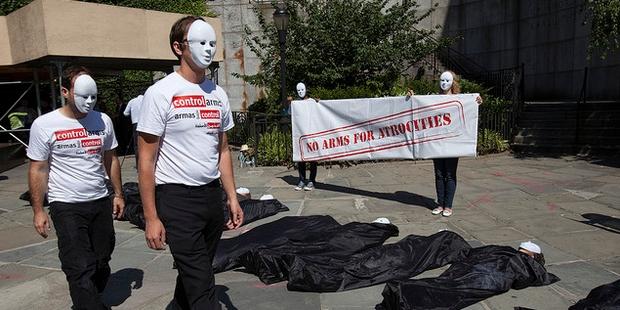
Amnesty activists descended on Times Square the week before Arms Trade Treaty talks began in New York. © Bob Scott
Earlier this week, world leaders officially opened the negotiations at the UN to forge an historic global Arms Trade Treaty (ATT) to regulate the international arms trade.
The negotiations cap a 10-year effort led by organizations, including Amnesty International, and a small group of progressive governments that have been fighting for the treaty despite skepticism of those countries involved with the incredibly lucrative arms trade estimated to exceed $60 billion annually.
The outright opposition from the largest producer of small arms, the United States, has been a critical point of contention is moving the Treaty forward. The administration of G.W. Bush rejected the idea of regulating arms, in effect removing the US’ 34% share of global arms market from inclusion in any global deal.
The Obama Administration reversed course and committed itself to securing an ATT, but until April 2012 rejected the inclusion of ammunition in a possible treaty or the need to have human rights at the heart of the document. The challenge for the US is whether it will be a passenger along for the ride or whether it will help shape a document that will save the lives of millions of people.
Despite this, the ATT process ground its way forward and now is center stage before the global community awaiting the final two critical ingredients:
Political Will and Leadership, commodities that are currently in short supply in too many places to count.
On Tuesday, Amnesty International and coalition partners delivered over 600,000 petitions to UN Secretary Ban Ki-Moon calling for a strong Arms Treaty. The petition drive took just 3 months and ignited activism from Mali to Bangladesh. It gave voice to communities that are rarely heard in the corridors of power and all too often ignored by the media, even as recently as today.

Activists in bodybags outside the UN building in New York call for a strong arms trade treaty. © Control Arms Coalition/Andrew Kelly
Why has this issue triggered such a response?
Because this treaty is our treaty.
These are our mothers, sisters, daughters who are being raped.
These are our relatives who are living in camps, having been displaced from their homes.
These are our children whose lives are being stolen as they are turned into killing machines and losing not only their childhoods, but more often than not also their futures.
These could be our families and cousins who do not even have the bittersweet mercy of being able to bury loved ones either killed in dark anonymity or slaughtered, nameless, in a massacre.
The question is whether these truths will be enough.
This is what a strong Arms Trade Treaty can do:
- Curtail the transfer of weapons to those who commit human rights abuses,
- Close loopholes in the regulation of the global trade in small arms and conventional weapons and,
- Create stronger mechanisms to help governments comply and implement their obligations.
The question is now in front of all of us whether we will be the change that we want to see or whether we will allow our leaders to fall short.